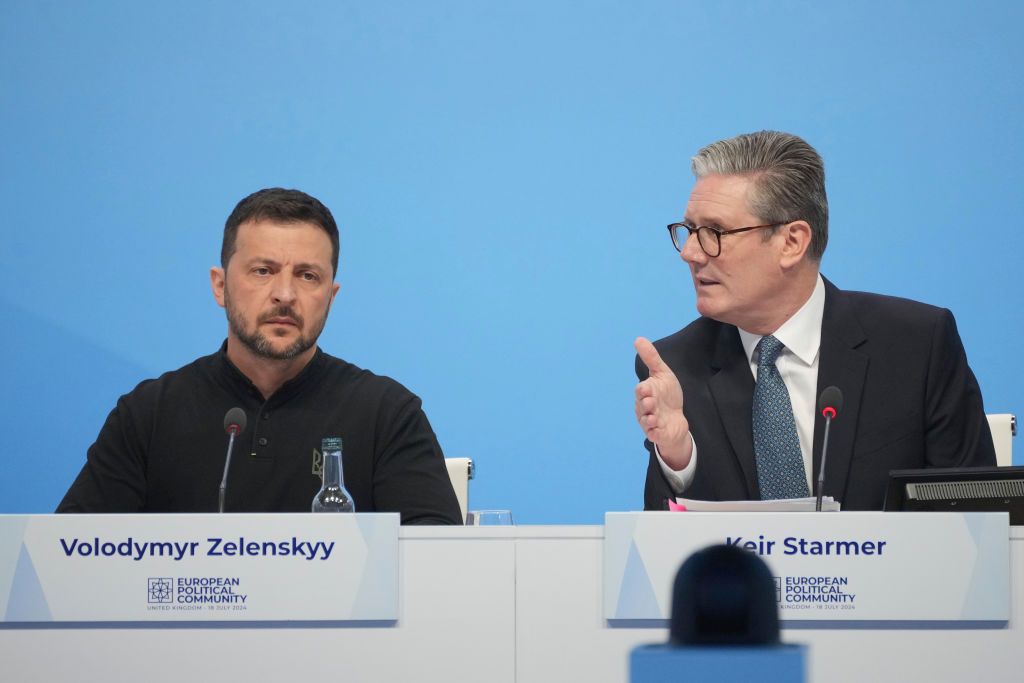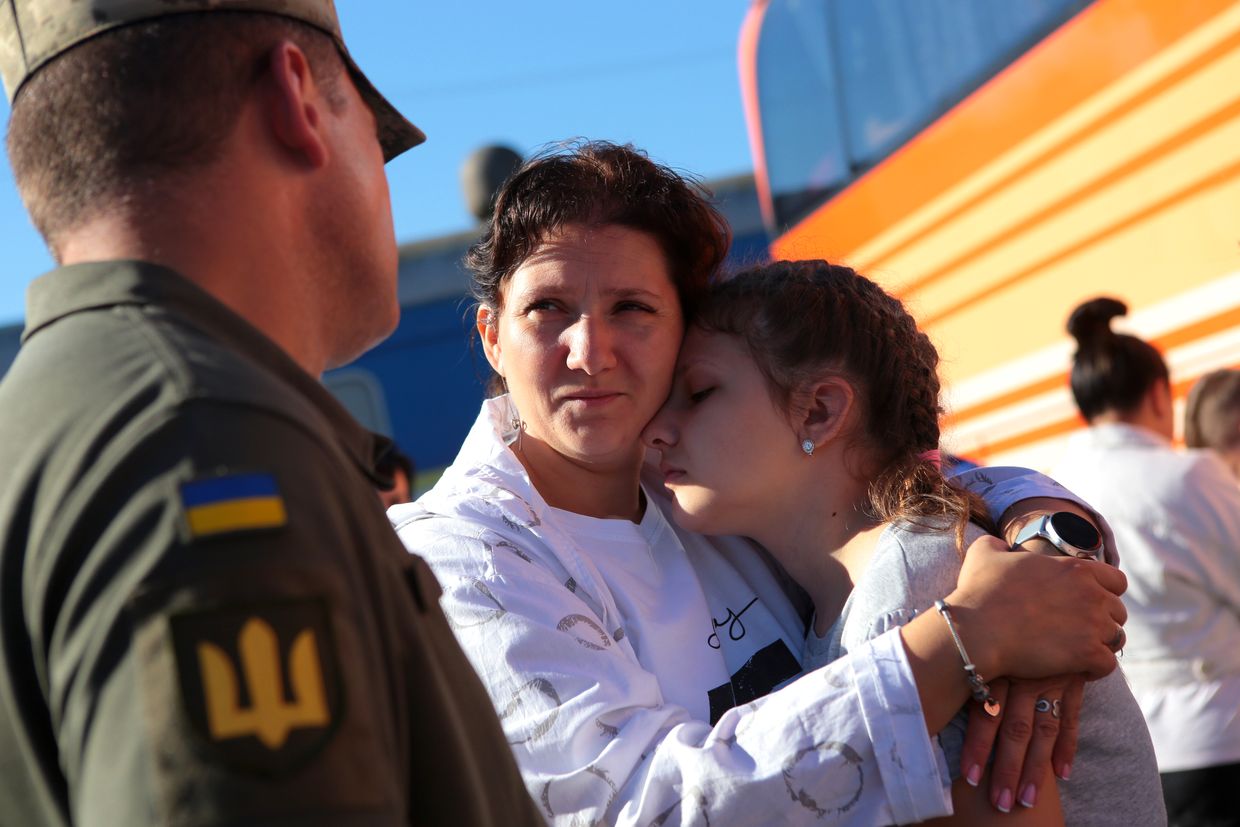Zelensky addresses UK Cabinet, urges Starmer to 'show leadership' on long-range strikes

President Volodymyr Zelensky addressed the British government at a Cabinet meeting on July 19, where he asked U.K. Prime Minister Keir Starmer to "show your leadership" in helping Ukraine conduct long-range strikes inside Russia.
Zelensky is the first foreign leader to address the Cabinet in person since U.S. President Bill Clinton in 1997. He is also the first official visitor invited to Downing Street since Keir Starmer was elected prime minister earlier in July.
Kyiv could better secure its positions on the front line "if the restriction on Western weapons is lifted," Zelensky said.
The U.S. gave permission on June 1 to use American-supplied weapons, including HIMARS rockets, to strike targets in Russia located near the border with Kharkiv Oblast after Russia launched a renewed offensive in the region on May 10.
Ukraine is still prohibited from using ATACMS and other long-range U.S.-supplied weapons for strikes deeper inside Russia.
The U.K. has provided Ukraine with Storm Shadow missiles, which have a range of up to 250 kilometers (150 miles) and have reportedly been used to hit military targets in Russian-occupied Crimea.
Starmer said earlier in July that it is up to Ukraine how to use British missiles, but said they should be "used in accordance with international humanitarian law" and "for defensive purposes."
U.K. Defense Secretary John Healey repeated this sentiment when asked by the BBC earlier on July 19, saying that the U.K.'s provision of weapons to Kyiv "does not preclude them hitting targets in Russia, but that must be done by the Ukrainians and must be done within the parameters and the bounds of international humanitarian law."
Zelensky arrived in the U.K. on July 18 to attend the European Political Community summit at Blenheim Palace in Oxfordshire. Upon arrival, he immediately met Valerii Zaluzhnyi, Ukraine's former commander-in-chief and recently appointed ambassador to the U.K.
At the summit, Zelensky argued that West's decision to allow Ukraine to hit targets within Russia along the Ukrainian border did not lead to escalations but rather stopped the war from expanding.
Zelensky previously said the lifting of restrictions would produce "an instant result" and could advance Ukraine's counteroffensive in Russian-occupied territories.
The same day, the U.K. announced sanctions on 11 more tankers that help Russia carry oil to third countries in a crackdown on Russia's shadow fleet, which has been used to circumvent Western sanctions and continue trading Russian oil.
According to the U.K. government, the shadow fleet is made up of around 600 vessels and carries approximately 1.7 million barrels of oil per day, the proceeds from which help fund Russia's war in Ukraine.
London's call to action against the shadow fleet has been endorsed by the EU and 44 individual European countries, the U.K. government said on July 19.














